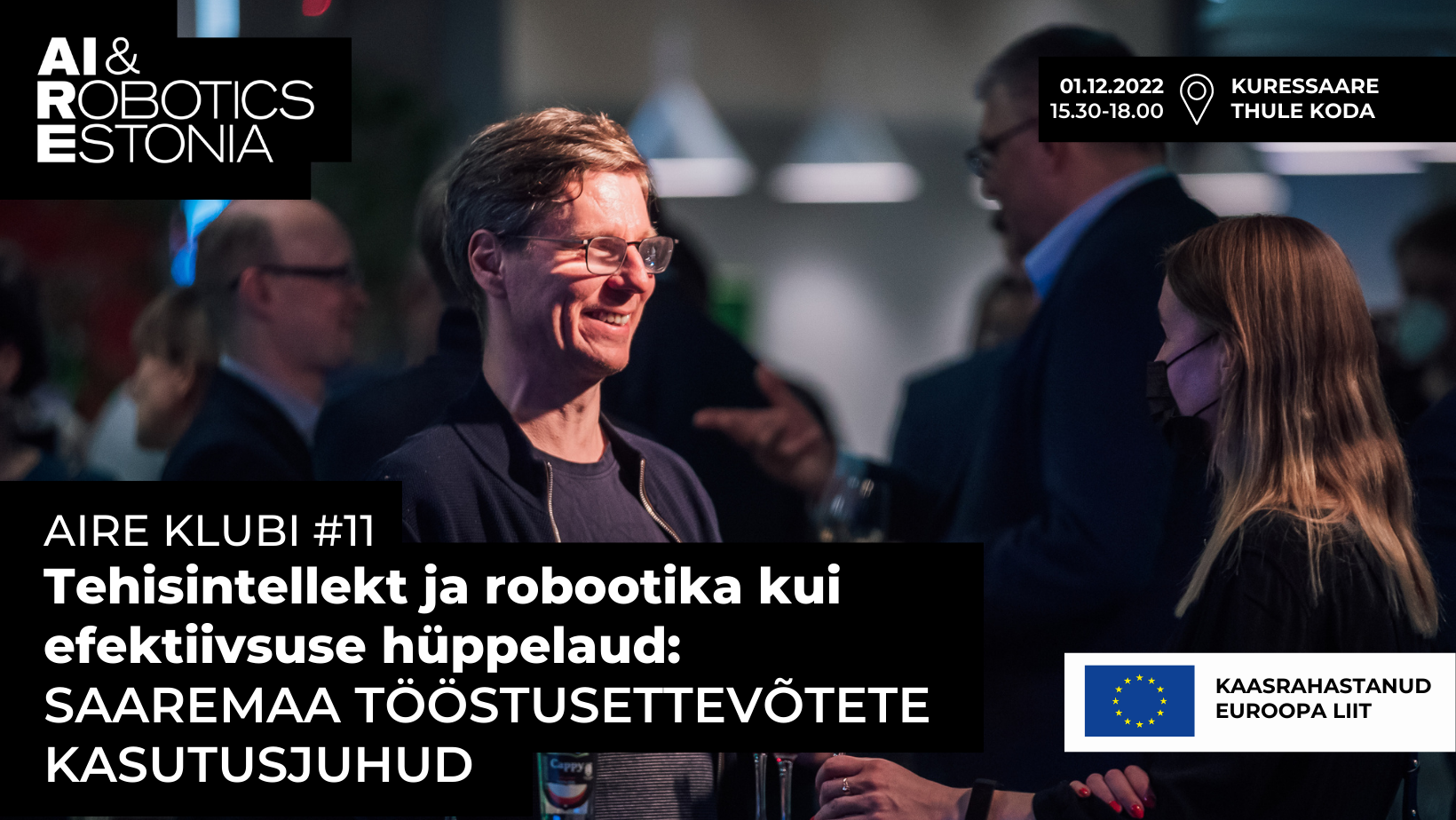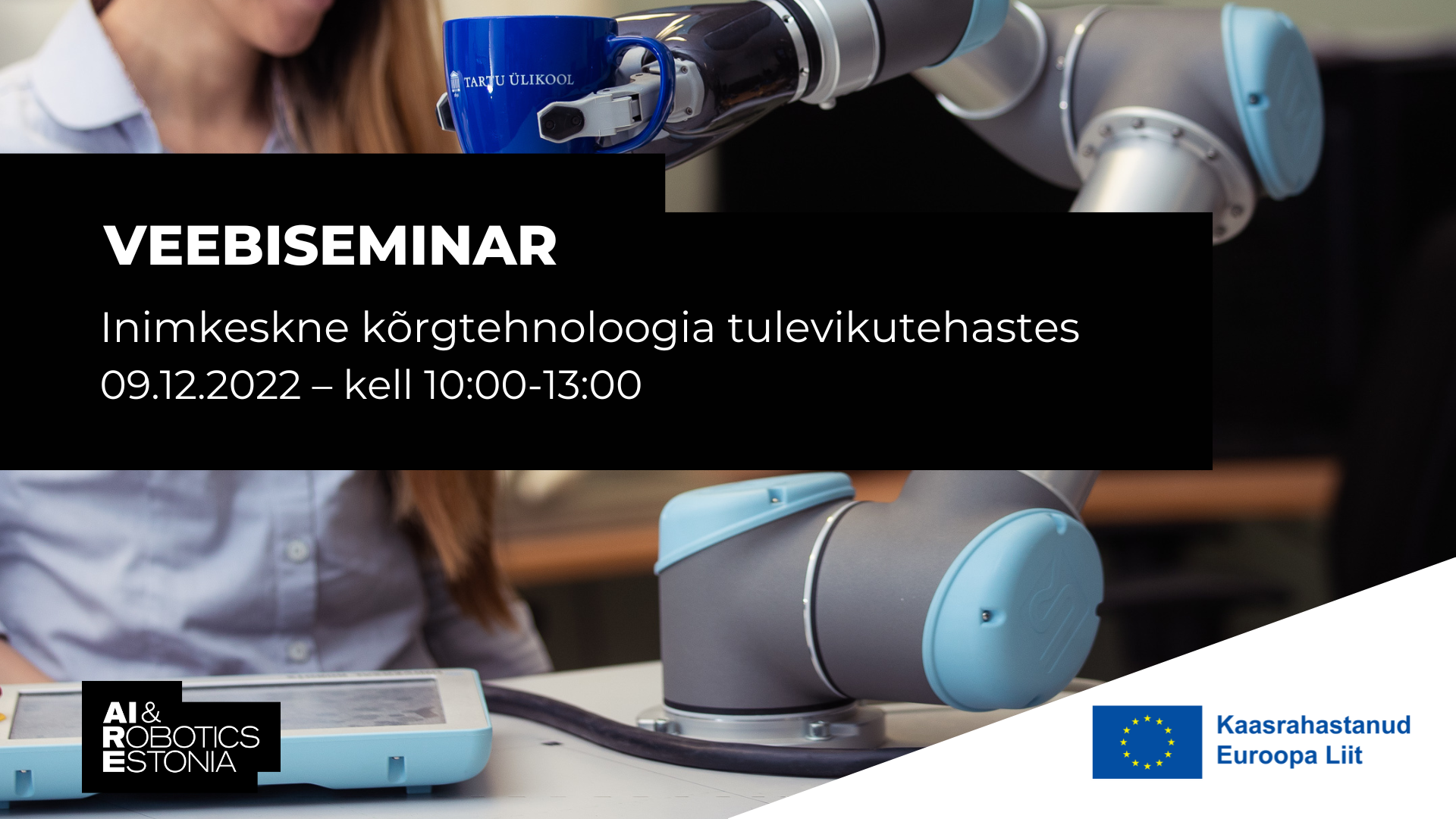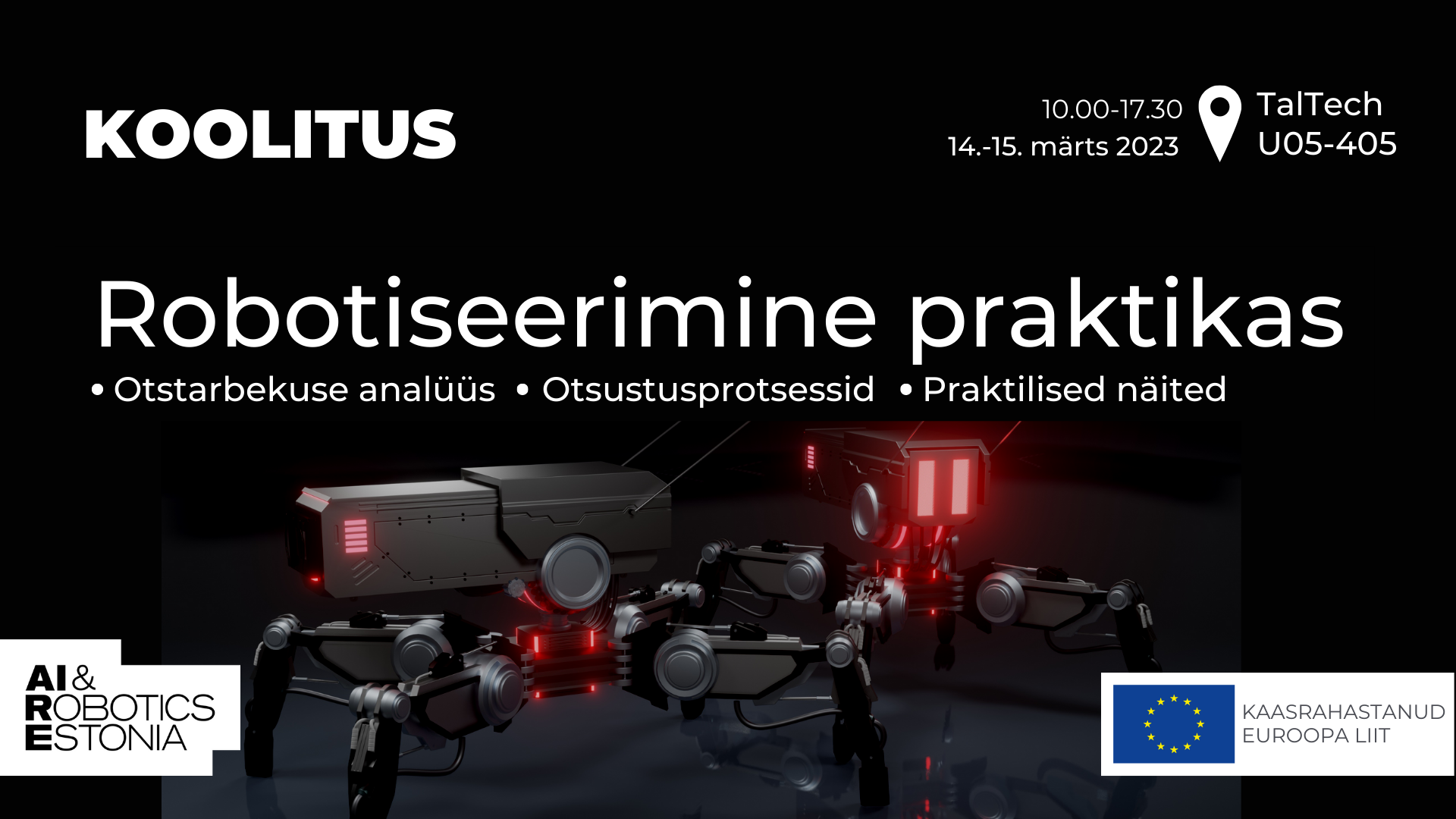AIRE (AI & Robotics Estonia) invites you to a webinar where they talk about industry 5.0, i.e. the cooperation between humans and high technology and its value in industry.
When participating in the webinar, the company receives minor assistance in the amount of €200 per participant.
TARGET GROUP
Small and medium-sized processing industry (EMTAK C) and manufacturing companies are welcome.
The courses are aimed at employees of industrial companies who want to get acquainted with the possibilities of digitization of production and industrial robots. All industrial managers, engineers, foremen, automatists, mechatronics, technicians, locksmiths, industrial operators, product manufacturers (including warehouse workers, electricians), IT specialists and others are welcome.
The webinar will be conducted by the leaders of the field from the Institute of Technology of the University of Tartu: associate professor of robotics Karl Kruusamäe and lecturer Veiko Vunder of robotics technology.
PURPOSE
There is a lot of talk in the industry about making production more efficient and increasing the variety of products. However, conventional automation solutions do not offer this to us because they require a large number of repetitive tasks.
Industry 5.0 creates a flexible work environment for us, where the production process benefits from the cooperation of humans and high technology, so that the strengths of both parties ensure the most efficient production process possible, and the person is freed from those tedious activities that can be delegated to the machine.
The webinar provides an overview of how technology shapes the human work environment and the potential of such solutions.
THEMES
Upon successful completion of the seminar, participants will gain knowledge of:
➠ about the value proposition of human and technology cooperation in industry;
➠ high technology (collaborative robotics, mixed reality, autonomous robot systems, etc.), which enable the creation of flexible Industry 5.0 production processes.
Webinar passers will receive a certificate of continuing education from the University of Tartu.
The deadline for registering on the website is December 1, 2022.
By registering for an AIRE training, seminar or other service for the first time, the company will also receive minor help from IMECC OÜ in terms of the digital maturity assessment consulting service. Read more about the digital maturity consulting service HERE. The digital maturity assessment consulting service helps to map your company’s strengths, bottlenecks and their impact on the company’s operations.
For additional information, contact us on +372 5688 0759 (Kirsi Zirel) or koolitused@aire-edih.eu.
Join the online fair and start preparing for a competitive future now!
SCHEDULE
Wednesday, December 7, 2022
10.00 – 10.10 Introduction to the webcast
10.10 – 10.55 Factories of the future: industry 4.0 and industry 5.0
11.00 – 11.45 Human and technology cooperation
11.50 – 12.35 Autonomous robots in production
12.40 – 12.45 Summary of the webinar
TEACHERS
Karl Kruusamäe is an associate professor of robotics at the University of Tartu, whose research focuses on robots in human environments (e.g. urban spaces, hospitals and production buildings). He defended his doctorate at the University of Tartu in 2012 and has worked both at the Japanese National Institute of Industrial Science and Technology AIST and at the University of Texas at Austin in the USA. Currently, Karl Kruusamäe contributes to the innovation of European and Estonian industry, actively participating in the cooperation networks of EIT Manufacturing (www.eitmanufacturing.eu) and EDIH-AIRE www.aire-edih.eu).
Veiko Vunder is a lecturer in robotics technology at the University of Tartu, who is involved in the high-level management of robots both in the framework of research projects and teaching, and is one of the leaders of the educational robot Roboton developed at the University of Tartu. Veiko Vunder has a computer engineering background. He defended his doctorate at the University of Tartu in 2016, after which he went to the University of Texas at Austin in the USA for a year. Currently, he participates in several robotics projects of EIT Manufacturing, is engaged in software development of robots and contributes to the development of educational materials.
TERMS OF PARTICIPATION
• When registering through Fienta, we will send you detailed information about participation by e-mail.
• The minimum number of participants for the webinar is 15.
• Up to 2 people from one company can participate.
• Participation in the webinar is free of charge for companies of the target group that have a free balance of minor aid (VTA) (the limit is 200,000 euros per company over three financial years).
• When participating in the webinar, the company is given minor aid by the state in the amount of 200 EUR per participant.
• By registering for the webinar, the company gives permission to use the VTA balance for participation, which is non-refundable in case of non-participation in the webinar (possible to cancel up to 10 working days before the start) or cancellation.
• If desired, it is also possible to participate in the course by paying on the basis of an invoice (including employees of large companies). The invoice sent to the e-mail must be paid by the payment deadline indicated on the invoice before the start of the webcast.
Check out AIRE trainings HERE.
The artificial intelligence and robotics center AIRE (EDIH) is financed by the European Digital Innovation Centers sub-programme of the Digital Europe Program and the Ministry of Economic Affairs and Communications (Project no.: 101083677)


